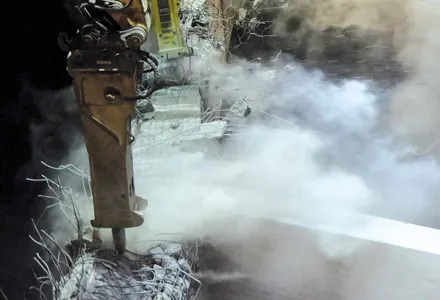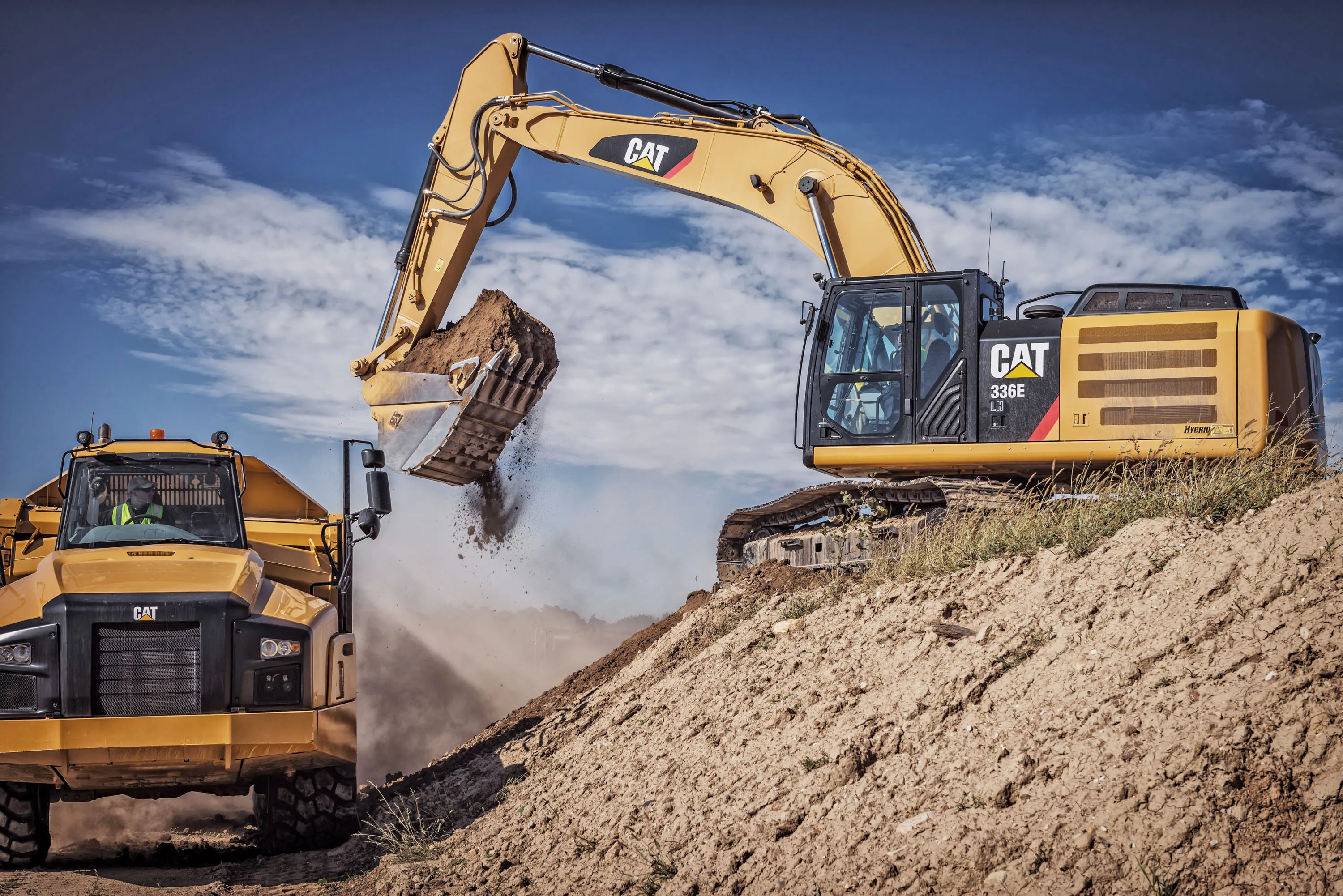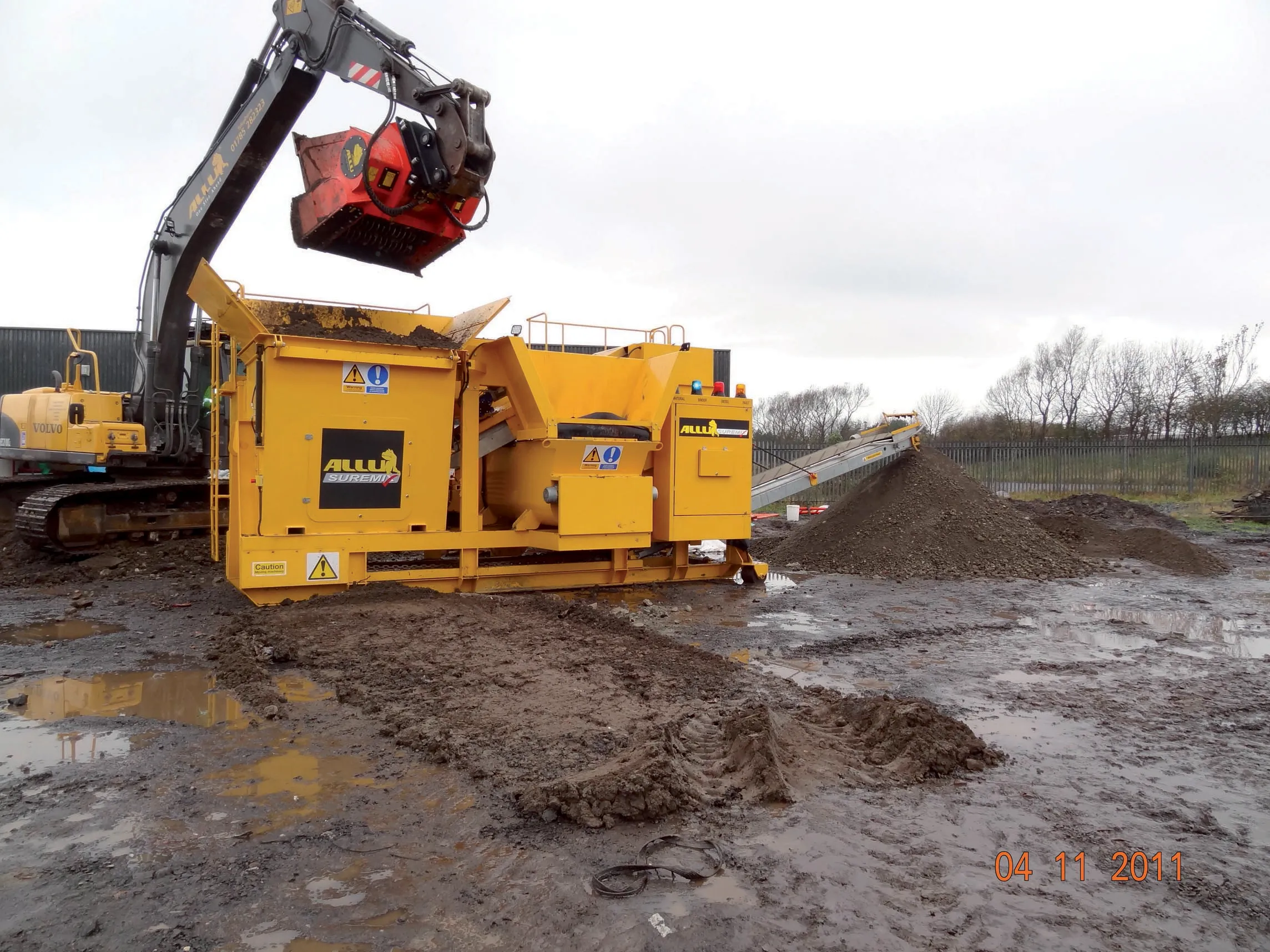French company ECT (Enviro Conseil Travaux) has opted to take advantage of the Caterpillar Certified Power Train (CPT) rebuild service for two of its Cat 740 Ejector articulated trucks. These are the first rebuilds worldwide for articulated trucks, and both were carried out by the French Cat dealer Bergerat Monnoyeur. What you get with CPT: Restores power train to like-new performance, Covers radiator, engine, transmission, torque converter, final drive and axle, Approximately 200 tests and inspections of p
February 7, 2012
Read time: 3 mins
French company ECT (2360 Enviro Conseil Travaux) has opted to take advantage of the 178 Caterpillar Certified Power Train (CPT) rebuild service for two of its Cat 740 Ejector articulated trucks.
These are the first rebuilds worldwide for articulated trucks, and both were carried out by the French Cat dealer2154 Bergerat Monnoyeur.
What you get with CPT:
• Restores power train to like-new performance
• Covers radiator, engine, transmission, torque converter, final drive and axle
• Approximately 200 tests and inspections of power train components
• Replacement or reconditioning of approximately 3,000 parts, including power train electrical switches, sensors, sending units, electronic control modules, engine wiring harnesses, bearings, gaskets, seals and coolant hoses
• Critical engineering improvements and updates incorporated
• Extended power train coverage available
"The Caterpillar CPT service offered by Bergerat Monnoyeur presented us with a more cost-effective option. It allows us to take advantage of a machine with a practically new engine, transmission and axles, and with external renovation, for around only 50% of the price of a new machine," explains ECT Directeur d'Exploitation Pascal Beslay on the choice of rebuild over a new machine.
"That includes a three-year extended warranty on the complete power train. And we could also be certain that the experience and expertise of our Cat dealer's technical staff would guarantee a first class renovation job." An initial study was undertaken to evaluate potential benefits, followed by detailed machine inspections and planning. Only then was the renovation process and thorough performance testing carried out. For each of the two machines, the total process, including dismantling renovation, painting and reassembly, took approximately 1,200 hours, and the two machines are now back at work.
ECT specialises in the storage of inert waste from building and civil engineering projects, and in its use for reclaiming and restoring derelict land.
Currently the company handles around 7 million tonnes of material brought by contractors to 14 landfill sites in the Paris region and the south of France. These include two gypsum mines, where the mineral extracted is being replaced by waste material in order to stabilise the cavity and prevent collapse or subsidence.
ECT was one of the first companies in Europe to buy 740 Ejector articulated trucks in 2004.
"For us the 740 Ejector is a perfect machine to match our application underground, where there are height, turning radius and visibility constraints.
"With its 38 tonne payload and long service intervals, the 740 Ejector has proved to be just as productive for us underground as a normal 740 articulated truck would working on the surface. Using it, we can move up to 50,000m³ of material per month working a single shift pattern," says Pascal Beslay.
But even the toughest machines have limited lives, particularly when they work underground, subjected to high dust, vibration and shock. By 2009 it was evident that, with over 8,000 operating hours, ECT would soon have to consider replacing them.
"We're a company whose primary concern is sustainability, and whose whole business is related to conservation and restoration of the environment. So does it make sense simply to scrap and replace a Cat machine when there's a more cost-effective, environmentally friendly alternative? Of course not," says ECT's environmental consultant Joel Labille.
The operational life of the two machines has been extended by at least 50%.
"Like the kind of work we do, it's a perfect example of sustainability in action," added Beslay.
These are the first rebuilds worldwide for articulated trucks, and both were carried out by the French Cat dealer
What you get with CPT:
• Restores power train to like-new performance
• Covers radiator, engine, transmission, torque converter, final drive and axle
• Approximately 200 tests and inspections of power train components
• Replacement or reconditioning of approximately 3,000 parts, including power train electrical switches, sensors, sending units, electronic control modules, engine wiring harnesses, bearings, gaskets, seals and coolant hoses
• Critical engineering improvements and updates incorporated
• Extended power train coverage available
"The Caterpillar CPT service offered by Bergerat Monnoyeur presented us with a more cost-effective option. It allows us to take advantage of a machine with a practically new engine, transmission and axles, and with external renovation, for around only 50% of the price of a new machine," explains ECT Directeur d'Exploitation Pascal Beslay on the choice of rebuild over a new machine.
"That includes a three-year extended warranty on the complete power train. And we could also be certain that the experience and expertise of our Cat dealer's technical staff would guarantee a first class renovation job." An initial study was undertaken to evaluate potential benefits, followed by detailed machine inspections and planning. Only then was the renovation process and thorough performance testing carried out. For each of the two machines, the total process, including dismantling renovation, painting and reassembly, took approximately 1,200 hours, and the two machines are now back at work.
ECT specialises in the storage of inert waste from building and civil engineering projects, and in its use for reclaiming and restoring derelict land.
Currently the company handles around 7 million tonnes of material brought by contractors to 14 landfill sites in the Paris region and the south of France. These include two gypsum mines, where the mineral extracted is being replaced by waste material in order to stabilise the cavity and prevent collapse or subsidence.
ECT was one of the first companies in Europe to buy 740 Ejector articulated trucks in 2004.
"For us the 740 Ejector is a perfect machine to match our application underground, where there are height, turning radius and visibility constraints.
"With its 38 tonne payload and long service intervals, the 740 Ejector has proved to be just as productive for us underground as a normal 740 articulated truck would working on the surface. Using it, we can move up to 50,000m³ of material per month working a single shift pattern," says Pascal Beslay.
But even the toughest machines have limited lives, particularly when they work underground, subjected to high dust, vibration and shock. By 2009 it was evident that, with over 8,000 operating hours, ECT would soon have to consider replacing them.
"We're a company whose primary concern is sustainability, and whose whole business is related to conservation and restoration of the environment. So does it make sense simply to scrap and replace a Cat machine when there's a more cost-effective, environmentally friendly alternative? Of course not," says ECT's environmental consultant Joel Labille.
The operational life of the two machines has been extended by at least 50%.
"Like the kind of work we do, it's a perfect example of sustainability in action," added Beslay.









